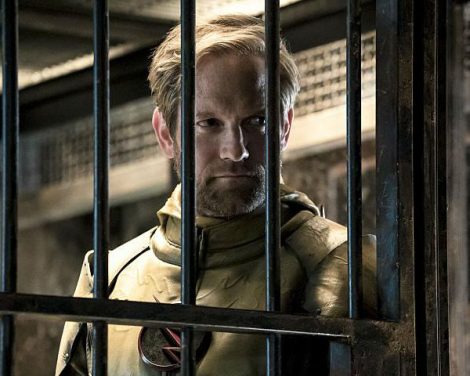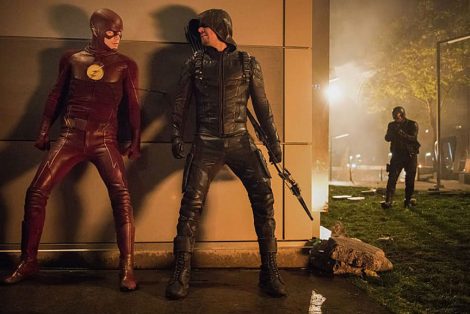The problem at the center of every iteration of Barry Allen, moreso than any other character, is that he’s very much the product of DC at a very specific time and place. When Green Arrow shed his Robin Hood imagery to become a hardened vigilante and Green Lantern removed the whiz-bang space age iconography to be something a little more hard-edged and militaristic, Barry has always been that nebbish, white-bread nerd.
In the third season, CW’s The Flash finally separated Barry from that character by just making him almost unfathomably unlikable. At the conclusion of the second season, Barry went back in time to save his mother from Eobard Thawne, creating a new timeline where he’s not the Flash. It was a decision that wasn’t sustainable, either for the characters or the show itself and by the end of the season premier, it was back to a slightly changed original timeline, where the repercussions of Barry’s decision were still playing out.

In much the same way as the particle accelerator created metahumans in Season 1, the echoes of Flashpoint activated new meta humans in Season 3, most prominently with Caitlyn Snow and eventually Wally West. With a few notable exceptions, namely the introduction of Mirror Master in “The New Rogues,” the only real development plot wise was in an ongoing B-story involving the appearance of a mysterious villain named Alchemy.
Slowly, in typical CW fashion, Alchemy is revealed as a tempting figure, offering supernatural powers to those who held them in the Flashpoint timeline in service of Savitar, the first speedster and a seeming god of speed. Still, the main consequences came in the form of other characters slowly becoming aware of the damage of Barry’s time travel. The whole team, as well as, eventually, Felicity and Diggle realize the far reaching implications of the decision as the season goes but they come to a head during the “Invasion!” crossover, when aliens note the increase of metahumans and the Flash’s role in their creation.
The season begins to shift as Savitar arrives however. With Alchemy, secretly Julian, Barry’s new co-worker at the CCPD, the god of speed shows his dominating abilities throughout the city, taking down Barry and casting a pall of fear over the team in, y’know, the exact same way that Zoom did last year because this show really needs to have a Big Bad who isn’t a speedster at this point.

Ultimately, the mid-season finale revolves around the team trying to find a way to control or destroy Savitar, who is able to influence Cisco even while ensnared in a mystical box. Ultimately, the team works to interrogate Julian to learn the secrets of Savitar, namely a prophecy that foretells doom for several members of the S.T.A.R. Labs team.
In order to stall that prediction, Barry and Jay heave the box into the Speedforce, but Barry is briefly sent into the future and sees Savitar killing Iris. While the team isn’t sure whether the future they’ve foreseen is going to come to pass, Barry went into the winter break unsure of the future he holds with Iris, even as the two’s relationship got closer.
It’s admirable for The Flash to finally acknowledge the many times Barry has failed but it’s had the effect of ultimately leaving the season feeling a bit repetitive, namely with the way it cribs its structure from Arrow and villain from the show’s first season.
It’s the show ignoring it’s own biggest strengths, namely The Rogues and the weirder parts of Central City’s criminal underworld, in favor of another story about a super fast baddie. It’s unlikely to be a problem the show will fix in the back half of the season but a focus on the core characters could still make for compelling TV.